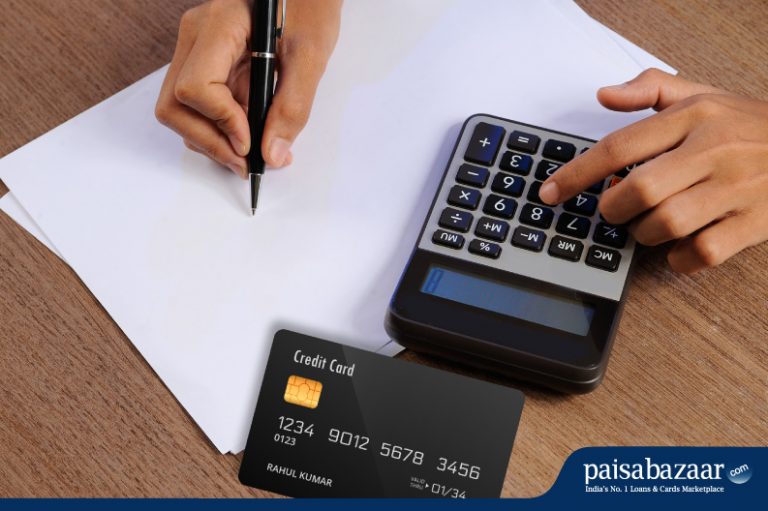
Unlike other monthly bills, credit card payments give you the complete ability to decide your payment amount, letting you pay in multiple ways. While paying the full statement balance is the preferred way, there may be times when you can only make the minimum payment. Although bank representatives won’t show up at your door demanding immediate payment, they will definitely impose numerous charges on you. Dipped credit score will add to your problems. Here we will talk about how a missed payment can affect your credit.
What are the consequences of making late payment of credit card dues?
EMI payment is considered late if it is made after the due date. The effects of late payment can stay on your credit report for months so it is important to understand why you should always pay your credit card dues on time.
1. You will have to pay late fee
When you fail to pay the minimum amount due on or before the due date of payment, the bank will levy a late payment fee which will be shown in the next month’s credit card statement. The amount of late fee will vary according to the amount of outstanding statement balance and usually goes up to a maximum of Rs.1,000. Here are some late fee payments charged by the banks:
| Bank | Late Fee |
| SBI Card |
NIL for Total Amount due up to Rs.200 |
| HDFC Bank |
NIL for Total Amount due up to Rs.100 |
| Citi Bank |
Rs.300 for current balance less than Rs.10,001 |
2. Interest payout will increase substantially
In addition to the late fee on your card, you will have to pay interest on the amount that lies outstanding after the due date has passed. Credit card interest is charged on a daily basis for as long as the balance remains outstanding in your account. Since the credit card interest rate is high, paying only the minimum amount due continuously will keep you in debt for a long time.
Let’s understand this with a basic illustration of a sample credit card statement-
| Example of Credit Card Statement | |
| Transaction Date | 1st March, 2020 |
| Transaction Amount | Rs.20,000 |
| Statement / Billing Date | 5th March, 2020 |
| Minimum Amount Due | Rs.1000 (5% of Rs.20,000) |
| Total Amount Due | Rs.20,000 |
| Amount Due Date | 25th March, 2020 |
| Assumed Monthly Interest Rate | 3.35% |
Case: When you pay the minimum amount due after the due date-
- Total Payment Made:1000
- Payment Date: 31st March, 2020
- Next Statement Date: 5th April, 2020
- Transaction done between 5th March to 5th April: Nil
Interest Calculation- The interest is calculated from the general formula (Number of days from the date of transaction made x Entire outstanding amount x Interest rate per month in % x 12 months / 365)
| Time Period | Interest Charged |
| Interest levied for 31 days (1st March to 31st March) | 31 x 20,000 x 3.35% x 12 / 365= 682.8 |
| Interest levied for 5 days (1st April to 5th April on balance of Rs.19,000) | 5 x 19,000 x 3.35% x 12 / 365= 104.6 |
Total Interest Charged= Rs.682.8 + Rs.104.6= Rs. 787.4
Note: Interest will be levied on the complete amount i.e Rs.20,000 till the first payment. After the minimum payment is done, the interest on balance amount i.e. Rs.19,000 will be levied for the next 5 days till the new statement is generated. Also, the late payment fee will also be levied in this case as the minimum amount due was not paid on time.
Did You Know?
|
3. Late payment is reported to credit bureaus
Experian, Equifax and TransUnion CIBIL are the major credit bureaus in India. Banks are obliged to report your EMI payments to credit bureaus so that they can prepare your credit report and assign a credit score to you. Payment history makes 30-35% of your credit score so even if you miss a single payment it can cause a drop in your credit score. A lower credit score can make it difficult for you to get new credit in future at reasonable rates.
Some credit card companies offer you a grace period, say 5 days, which means that if you are only 5 days late in making payment, the late fee will be reversed and late payment will not be reported to the bureaus.
Bottom Line
Apart from these three major blows of not paying your credit card dues on time, you may also lose out on the preferential rates of interest, promotional discounts on certain brands and extra reward earnings. Hence, you should always clear your credit card dues per month so that you can keep enjoying the benefits on the card along with a good credit score.
1 Comment Comments
THANKS MADAM.
YOUR ARTICLES ARE VERY INFORMATIVE, SIMPLE SENTENCES & HAS GOOD CLARITY.
KEEP UP THE EXCELLENT WORK.